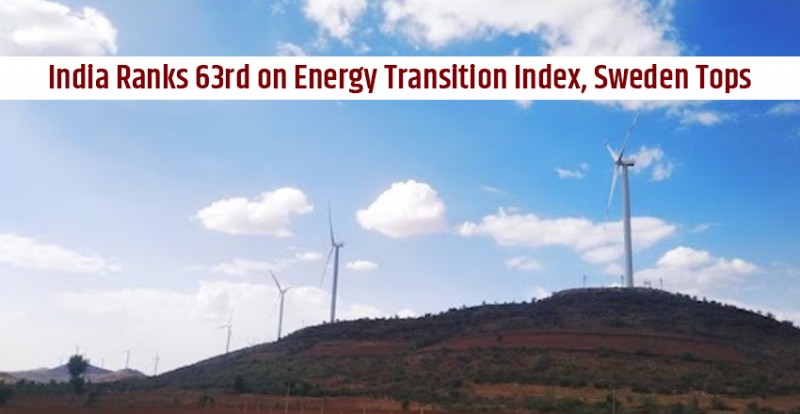
India has been ranked 63rd on the global Energy Transition Index released on Wednesday by the World Economic Forum (WEF), which highlighted significant improvements in energy equity, security, and sustainability. The report noted that European countries dominated the top ranks, with Sweden leading the index, followed by Denmark, Finland, Switzerland, and France in the top five.
China secured the 20th position in the rankings.
The WEF report underscored the progress made by India, China, and Brazil, despite 83 percent of countries regressing in at least one of the energy system performance dimensions—security, equity, and sustainability, from the previous year.
Acknowledging India's efforts, the WEF mentioned that the country is setting a precedent with initiatives that can be emulated globally. The report suggested that governments should focus on creating awareness and implementing policy interventions, such as guidelines for energy-efficient infrastructure and incentives for retrofitting, to foster an environment conducive to accelerated adoption.
"The developing world has an opportunity to redefine standards and pave the way for transforming energy demand—reverse innovation, like frugal, scalable innovation originating in developed countries and then being scaled worldwide, is an example," the report stated.
Regarding China and India's roles, the WEF emphasized their critical influence, given their substantial populations. Both countries have made progress in expanding renewable energy infrastructure, enhancing energy access, and improving energy security. However, transitioning away from coal remains pivotal in reducing emissions. Additionally, both nations are well-positioned for green technology manufacturing.
Globally, the report highlighted that while energy transition towards an equitable, secure, and sustainable energy system is advancing, it has slowed amidst increasing global uncertainty. The report noted that 107 out of 120 countries assessed in the report demonstrated progress in their energy transition journeys over the past decade. However, balancing the different facets of the transition remains a significant challenge.
"While the pace of innovation growth has decreased, countries such as China and India are leading in developing new energy solutions and technologies," the report added.
The WEF commended India's strides in its clean energy infrastructure, with renewable energy and biomass constituting 42 percent of its power generation capacity, making it the world's fourth-largest renewables market. The report noted that India is driving the adoption of electric vehicles (EVs) and the production of green hydrogen, with annual investments nearing USD 10 billion in these sectors.
"However, the significant reliance on coal in both China and India remains a major factor contributing to their emission intensity," the report cautioned.
Emerging and developing Asia, including populous nations like India and China, recorded an 8 percent improvement in their Energy Transition Index (ETI) scores over the past decade, primarily due to reduced energy intensity.
The WEF also highlighted India's focus on using energy for income generation and supporting microenterprises through the productive use of renewable energy sources. India's per capita emissions, at 1.7 tonnes of CO2, are already 60 percent lower than the global average of 4.4 tonnes of CO2 per capita.